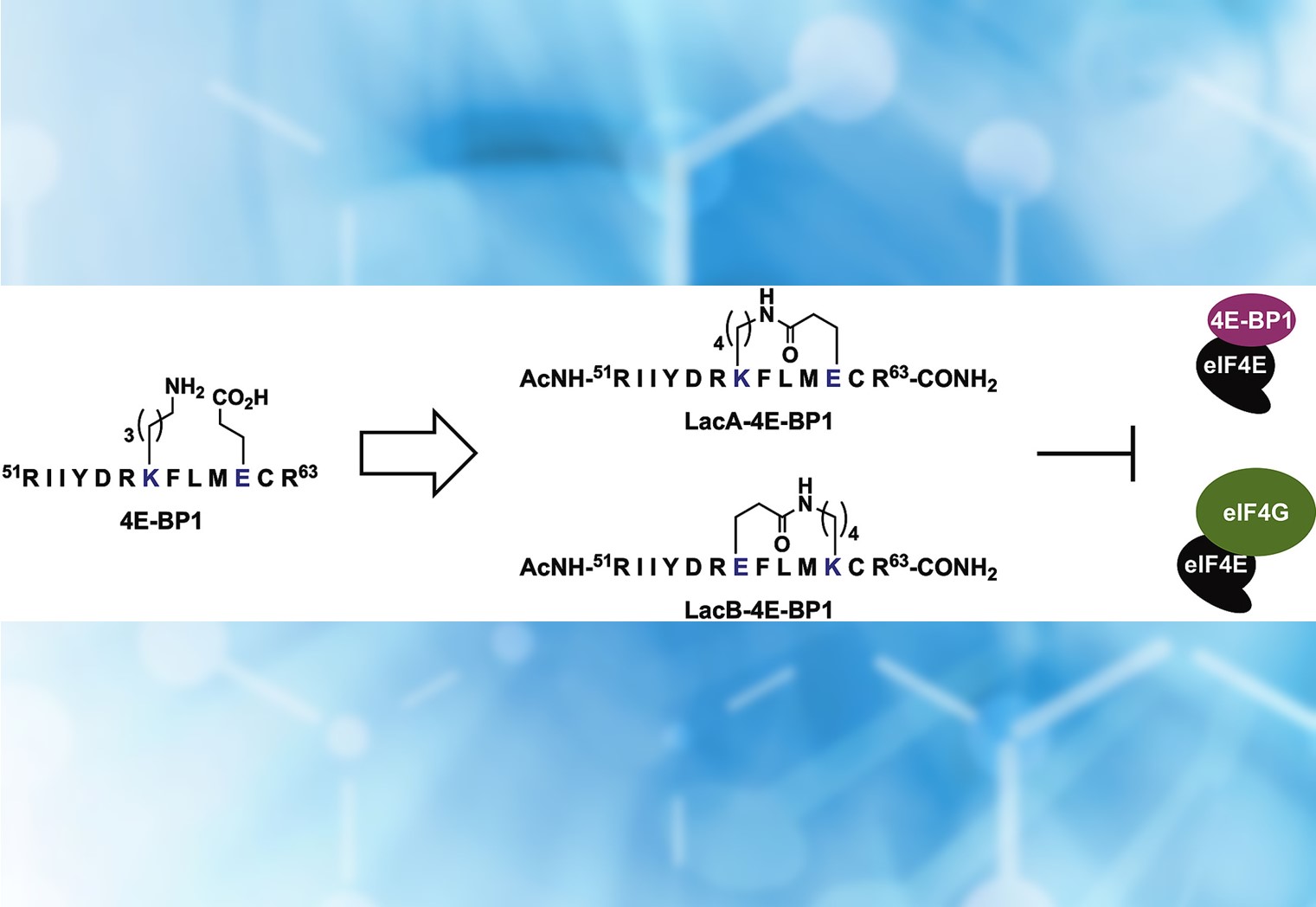Stapled Peptide
Reflecting work in the
Eukaryotic translation initiation factor 4E (eIF4E) has emerged as a promising cancer therapeutic target due to its role in the initiation of cap-dependent translation, a process that is accelerated during tumorigenesis.
To regulate the initiation of cap-dependent translation, eIF4E participates in protein-protein interactions (PPI) with binding partners, 4E-BP1 and eIF4G, which act as an inhibitor and stimulator of translation, respectively.
As both of these proteins interact with eIF4E by utilizing a short, α-helical stretch of amino acids, the Garner and Kritzer laboratories has been working to develop helical mimetics of these proteins, in particular 4E-BP1, to inhibit eIF4E PPIs. Herein, they describe their continued efforts in this area and report the development and characterization of a cell-penetrant lactam stapled peptide for targeting cellular eIF4E.


